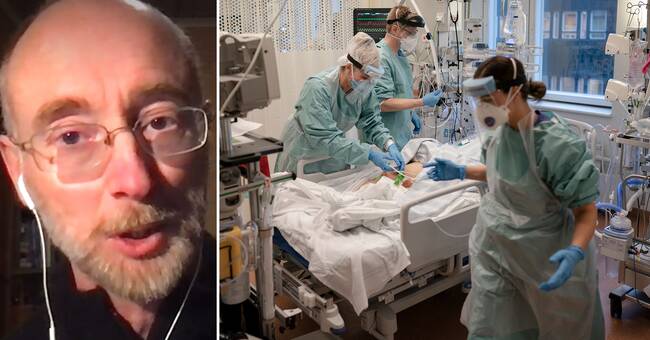Swedish researchers have studied the prevalence of children between the ages of 1 and 16 who were cared for in the intensive care unit between March and June last year, children with covid-19, or so-called multi-inflammatory syndrome, MIS-C, which is linked to covid-19.
Of almost two million Swedish 1-16 year olds, 15 children were cared for for covid-19 or MIS-C in intensive care during the spring of 2020.
- It is 1 per 130,000 children.
It is, after all, a low figure.
It is gratifying that severe covid-19 is so unusual among children despite the fact that primary and lower secondary schools have been kept open during the pandemic, says Jonas F Ludvigsson, pediatrician at Örebro University Hospital and professor of clinical epidemiology at Karolinska Institutet.
Why children become less ill than adults is not known with certainty today.
- My own guess is that children have more recently been affected by other viral diseases and therefore have a better defense against covid-19.
There are also few with underlying disease.
Probably no increased risk for children with chronic illness
According to Ludvigsson, the study shows that most children who end up in intensive care do not have any underlying risk factors.
- This means that parents of children with chronic diseases should be able to breathe out.
The risk that their children will become very seriously ill in covid-19 is probably not higher than for other children in society.
I think this is very valuable for parents who have children with autoimmune diseases, heart defects, neurological disabilities and so on.
Javascript is disabled
Javascript must be turned on to play video
Read more about browser support
The browser is not supported
SVT does not support playback in your browser.
We therefore recommend that you switch to another browser.
Read more about browser support
Pediatrician Jonas F Ludvigsson answers three questions about children and covid-19.
Photo: Andreas Zernell
Hope to have effects abroad
Jonas F Ludvigsson hopes that the study will have an impact abroad, and lead to more countries daring to open primary schools.
- Closed primary schools mean that hundreds of millions of children do not receive the education they need.
However, the study, published in the New England Journal of Medicine, did not examine whether open schools have led to an increase in the spread of infection in society.
Johanna Höög is an associate professor of cell biology at the University of Gothenburg and one of the researchers and debaters in the group Vetenskapsforum covid-19.
She is critical of Ludvigsson's conclusion that schools can be kept open and tells SVT that they should not take any risks with the children's health.
- I do not think that 15 children at IVA during that period is a small number.
These children and their families have gone through a very serious illness and of course no one wants to experience it.
So I believe that schools should be kept closed now that we have a large spread of infection in society.

